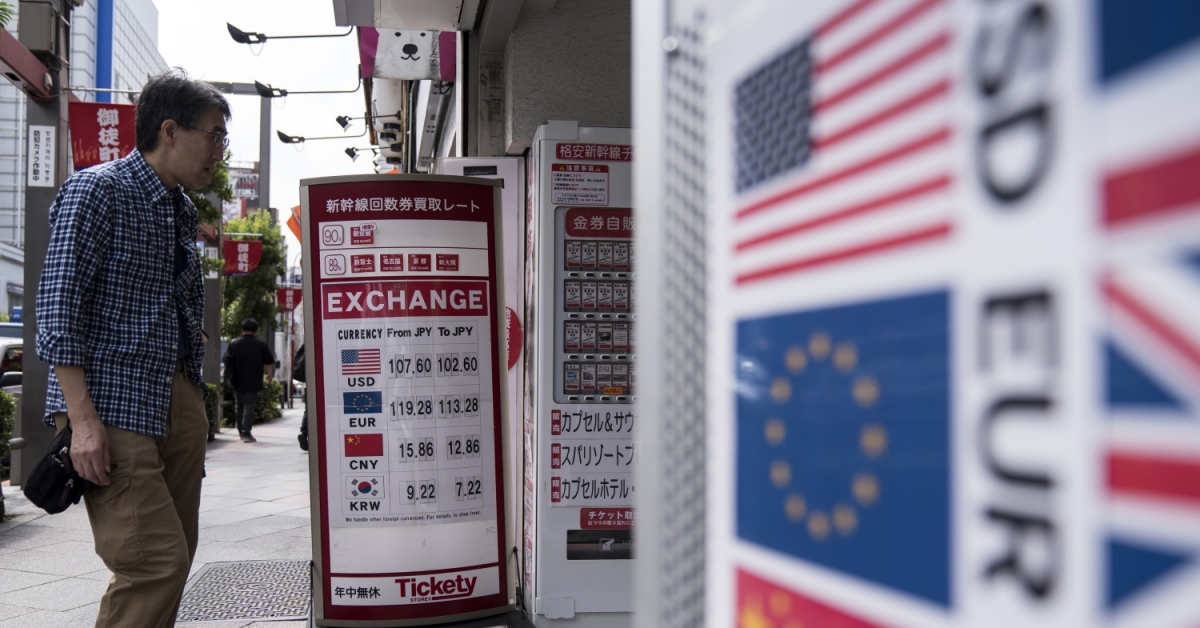“I’m not selling,” Makoto, a Japanese entrepreneur and XRP investor, told CryptoX.
Makoto first bought the digital token XRP in 2017, a year after its issuer, San Francisco-based Ripple Labs, launched a joint venture with one of Japan’s most respected financial services institutions, SBI Holdings Inc.
Soon after, the popularity of XRP soared in Japan.
“XRP was probably the single most popular token or cryptocurrency in Japan. It was also backed by SBI. It invested in Ripple,” Mike Kayamori, founder and chief executive officer of crypto trading platform Liquid Global, told CryptoX.
Now, Japan’s love for XRP is being tested after the U.S. Securities Exchange Commission (SEC) filed suit against Ripple Labs in December 2020. The complaint accuses the firm of violating U.S. securities law, arguing that Ripple failed to register XRP as a security or seek an exemption before the company began selling it seven years ago.
Japan considers XRP to be a cryptocurrency, but this has no bearing on the SEC’s allegation that Ripple sold XRP in unregistered securities transactions. Likewise, the U.S. classification of the cryptocurrency isn’t likely to impact how Japan treats XRP.
Following the filing, a string of prominent crypto exchanges, including Coinbase and Binance, announced they will delist or suspend XRP from their U.S. platforms.
XRP has a strong global fanbase, and a lot of people see this lawsuit as an attack on virtual currencies in general, Kayamori said.
Ripple declined to comment about XRP’s popularity in Japan.
“The crypto community, I feel, sees this as a big blow to them and as kind of a precursor to what could come in the future, that other companies are also vulnerable,” Kayamori added.
Although XRP is still widely available in Japan, some local XRP users appear somewhat shaken by the lawsuit.
“Many people are saddened by the SEC issue these days … I am very worried,” Okurisan, another Japanese XRP investor, told CryptoX via Twitter. He said he sold most of his XRP after hearing about the lawsuit.
SBI’s influence, Ripple’s marketing and relatively clear regulation that classified XRP as a cryptocurrency is driving XRP’s popularity in Japan.
Okurisan, for instance, said XRP will be “soaring” once again. Despite the lawsuit, XRP’s price rallied in early January, driven in part by retail investors in Asia.
A giant’s blessing
SBI Holdings was established in 1999 as a subsidiary of internet and media conglomerate SoftBank Corporation until the two firms parted ways in 2006.
According to Masakazu Masujima, a partner at international law firm MHM Global, SBI was set up as an innovation-focused investment arm of SoftBank, and “SBI” initially stood for SoftBank Investment.
Now SBI Holdings Inc. has almost $950 million paid-in capital and 8,568 employees, according to its website. In January 2020, it announced plans for a new venture capital fund of $920 million that would be the largest active fund focused on startups in Japan, according to Nikkei Asia.
Masujima said SBI’s work as a financial services innovator has earned it the respect of Japan’s tech-savvy population.
“The SBI culture is very much innovative. It has actually pioneered Japan’s internet based finance services from internet based securities to foreign exchange and virtual currency trading. So people from the internet space are very big fans of what SBI has achieved so far,” Masujima told CryptoX.
After the SEC filed suit against Ripple Labs and companies began distancing themselves from XRP, SBI came to its support releasing a statement that said, under Japanese financial laws, XRP is characterized as a crypto asset and not a security.
“SBI Holdings is and will continue to be a strong partner of Ripple,” representatives for SBI later told CryptoX via an email.
Following the filing, Yoshikata Kitao, SBI chief executive officer and board member at Ripple Labs, tweeted that Japan’s financial authority, the FSA, had already made it clear that XRP was not a security.
“I’m optimistic that Ripple will prevail in the final ruling in the U.S.,” Kitao said.
The SEC complaint against Ripple Labs alleges that from 2018 to 2020, Ripple made “institutional sales” of at least 1.1 billion XRP (worth over $300 million) to SBI.
The complaint includes a 2017 tweet by Kitao, named in the document as “Institutional Investor C”, which said, “Wow, XRP at all time high! Forget about bitcoin, we’re all in on XRP!”
In effect, an SBI endorsement goes a long way: When asked why he invested in XRP, Okurisan replied, “I bought XRP because it is supported by SBI.”
Marketing
In Japan, XRP was uniquely marketed as a remittance-instrument and people on the internet, mainly those who frequently use Twitter, purchased XRP believing it would be the next bitcoin, Masujima said.
With the 2016 joint venture SBI Ripple Asia, the U.S. crypto firm introduced its international remittance and payments settlement network RippleNet to Asia.
According to the SBI website, RippleNet uses distributed ledger technology (DLT) to directly connect users with financial institutions to “instantly and reliably transfer money in more than 40 currencies to more than 70 countries.”
Makoto told CryptoX that what made Ripple’s XRP so attractive was the “speed of remittance” processing.
“The first thing I bought was bitcoin, but the long wait I had when I moved [exchanges] was painful. XRP is already used in international remittances by many banks, and the system requires far less power than bitcoin,” Makoto added.
Between 2018 and 2020, Ripple entered into partnerships with financial institutions in a number of countries including UAE, Malaysia and Brazil to introduce the remittance product RippleNet.
Regulation
In addition to a strong partnership with SBI and its role in facilitating speedy remittances, under Japanese financial law, XRP was treated as a cryptocurrency.
In fact, before the SEC brought the case against Ripple, CEO Brad Garlinghouse contemplated moving the firm out of the U.S. because the SEC wouldn’t state that XRP is a currency and not a security, as U.K. financial authorities had done.
Japan was among the countries Ripple was considering for the move because XRP is classified as a crypto asset.
“In Japan, all the tokens that are listed or available to be traded in Japanese regulated or licenced exchanges are already whitelisted or allowed for use by an administrator in advance,” Kayamori said.
Under the Payment Services Act of 2009, amended to include a chapter on virtual currencies in 2017, all virtual currency service providers were required to register and obtain licenses.
Masujima, who frequently works with the FSA to shape regulation, said the agency views the crypto space as something that can provide “genuine” financial services. Therefore, according to Masujima, the FSA believes it should be regulated in the same way as securities, and that existing provisions on crypto assets reflect this.
Following the SEC filing, FSA made a statement made to crypto publication The Block, saying that under the Payment Services Act, the regulator considers XRP to be a cryptocurrency, although it did not specify if this precludes XRP from also being considered as a security.
The FSA did not respond to comment in time for publication.
“Within the Japanese regulatory guidelines, if your token is whitelisted as a cryptocurrency that means it’s legal. You don’t have to further define it … regardless of the U.S. saying it’s a security or Singapore or Switzerland or any other jurisdiction saying otherwise,” Kayamori said.
Kayamori added he does not believe that FSA would re-classify XRP as a security in light of the U.S. lawsuit, but if it did it would be “a first.”
Joel Edgerton, chief operating officer at bitFlyer USA, a subsidiary of Tokyo-headquartered bitFlyer, told CryptoX via an email that bitFlyer Japan, one of the largest crypto exchanges in the country, continues to list XRP for Japanese clients based on regulatory guidance from their domestic regulator. bitFlyer Japan declined to comment.
Although Makoto admitted he was worried about the suit, he said Ripple’s technology will continue to be adopted by banks around the world for processing remittances.
“We [will] not sell even if there is a gain, and even after the litigation problem,” Makoto said.




